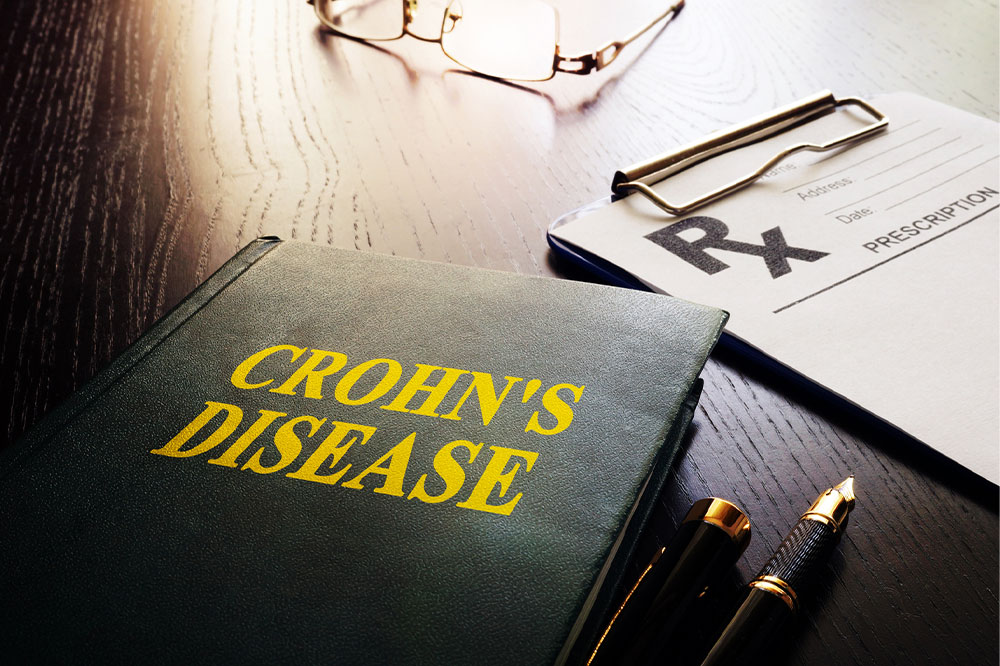
Top 10 early warning signs of Crohn’s
The Centers for Disease Control and Prevention estimates that about 1.3% of adults in the country have Inflammatory Bowel Disease (IBD), like Crohn’s Disease and ulcerative colitis. Chronic inflammation of the digestive tract leads to Crohn’s disease. Early diagnosis and treatment can help in maintaining your quality of life and preventing complications that may be life-threatening. Following are some of the early warning signs of Crohn’s disease to look out for:
Abdominal pain
It can indicate Crohn’s disease if you feel cramps and pains in the lower right abdomen or any spot along the digestive tract. Recurring inflammation, abscesses, and ulcers that develop along the GI tract cause the pain. For some, pain may be the only symptom.
Nausea
Some may have cramps that make them nauseous. Some may throw up when there is pain. If one has continuous or frequent pain and vomiting episodes, visit a doctor without delay.
Chronic diarrhea or constipation
If diarrhea does not respond to home remedies or over-the-counter remedies, it may be an early warning sign of inflammation in the colon. Though diarrhea is more common, some may also experience constipation and pain while passing stools.
Anal fissures
Crohn’s disease directly leads to tears or fissures in the anus lining. The fissures can get infected. It can also cause severe pain and bloody stools. If you notice blood in your stools, contact your doctor immediately.
Fever
Fever and higher body temperature happen when the disease has advanced, and abscesses form or get infected. Fever may be accompanied by abdominal pain and cramps.
Mouth sores
Sudden mouth sores or flare-ups that do not respond to initial treatment can also indicate Crohn’s disease. A weak and damaged digestive system cannot break down and absorb the nutrients from the food you eat. The resulting vitamin and mineral deficiencies and inflammation lead to canker sores.
Disturbed appetite and eating patterns
Crohn’s disease disturbs the levels of hormones like leptin and ghrelin, which increase or reduce our hunger. Because of the hormonal imbalance, one may feel full even if one has eaten very little. The frequent trips to the bathroom, diarrhea, and constipation can cause aversion towards food as an individual may be unsure of what to eat and what to avoid. If you have been going through such symptoms for more than a week, do not ignore them and visit your doctor.
Fatigue
An individual could feel tired and may not have any energy to do anything. The sense of tiredness could be overwhelming and may not improve with adequate rest. This fatigue can happen even for those who do not experience diarrhea or lack appetite.
Weight loss
The cumulative impact of poor appetite, food aversions, malabsorption of vitamins and minerals, dehydration due to diarrhea, and loss of nutrients results in weight loss. Our body uses more calories to fight the impact of these diseases and symptoms, adding to the weight loss. One may experience weight loss along with one or more warning signs.
Skin issues
An individual may also notice dark or purple-colored bumps on the skin, open sores in the shin and ankles, or acne in teenagers. Skin tags or growths can form in armpits, groin, or anus. If it forms in the anus, fecal matter can stick to it, causing irritation and a foul odor. Blisters and psoriasis are also early warning signs of Crohn’s disease. Many ignore skin issues such as allergies and may use over-the-counter treatment options. If symptoms persist, visit a doctor for an accurate and early diagnosis.
Importance of knowing early warning signs of Crohn’s disease
Crohn’s disease is a chronic condition, and since many tend to ignore the early warning signs, the disease could have progressed at the time of diagnosis. Typically the symptoms of Crohn’s disease begin during the teenage and twenties. There have been cases where the symptoms start as early as 15. The disadvantage is that in most cases, symptoms do not show early. The severity and intensity of the symptoms also vary based on which part of your gut is affected. The inflammation can happen in any part of the GI tract, from the mouth to the anus.
You must not ignore the early warning signs if your symptoms continue for more than two weeks. Doctors will do multiple tests and diagnose Crohn’s disease only if they rule out other possible causes, as the above symptoms are common for many diseases. They will use blood, stool, and imaging tests to confirm Crohn’s disease and to pinpoint which area of the GI tract has been damaged.
Complications of Crohn’s disease
Doctors are yet to develop a cure for Crohn’s disease; they treat it to reduce inflammation and prevent further complications. Urgent bowel movement, pain, loss of appetite, and weight loss are the common impacts of Crohn’s disease. Some of the other complications of Crohn’s disease are:
Intestinal blockage which is an emergent situation
Thickening of intestinal walls, making digestion slow and difficult
Forming fistulas or hollow connections allows fecal matter to travel to the intestine or other body parts, leading to severe health complications.
Inflammation of joints, skin, eyes, liver, and bile ducts
Development issues in young children
Osteoporosis
Anemia
Disease in gallbladder and liver
Malnutrition